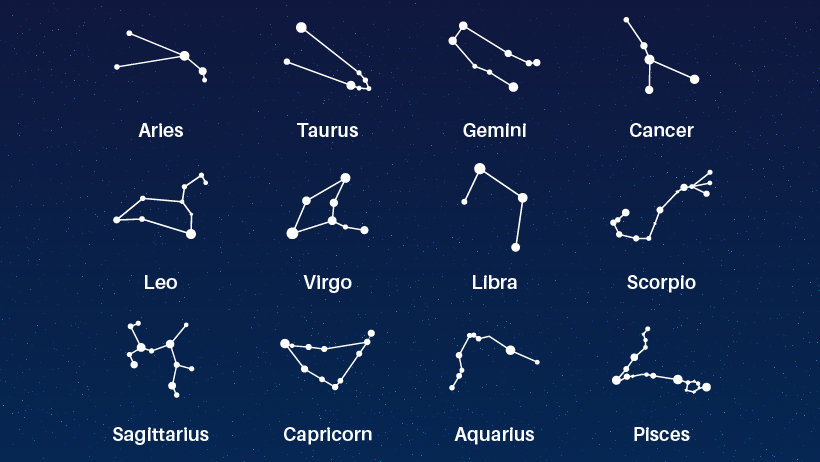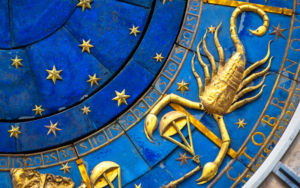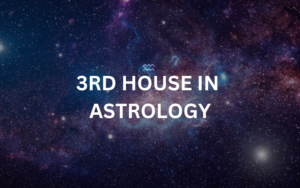Astrology Explained: How Celestial Bodies Shape Human Life?
Often described as the language of the stars, it is a profound discipline rooted in the observation and interpretation of the cosmos. At its core, astrology is the systematic study of the positions, movements, and relationships of celestial bodies such as planets, stars, and constellations, and the profound impact they exert on human affairs and the natural world.
Table of Contents
By meticulously charting the celestial map, astrologers discern intricate patterns and alignments that mirror the complexities of human existence. Every planet, zodiac sign, and aspect holds symbolic significance, weaving a tapestry of cosmic energies that shape our lives in profound ways.
Throughout history, astrology has served as both a guiding light and a source of profound insight for countless civilizations, from ancient Mesopotamia to Classical Greece and beyond. Its enduring appeal lies in its ability to offer a framework for understanding the interconnectedness between the microcosm of individual experience and the macrocosm of the universe.
Astrology acknowledges the intimate dance between celestial forces and earthly phenomena, recognizing that the cycles of the stars are intimately intertwined with the rhythms of nature and the ebb and flow of human destiny. It invites us to contemplate our place within the vast cosmic symphony, illuminating the inherent harmony and synchronicity that underpins all existence. Through the lens of astrology, we gain a deeper appreciation for the profound interplay between the heavens above and the world below, unlocking new dimensions of insight, meaning, and wonder.
The Evolution of Astrology Across Cultures
Across diverse cultures and civilizations spanning millennia, astrology has held a significant and enduring role, transcending geographical boundaries and cultural divides. From the ancient civilizations of Mesopotamia, Egypt, and China to the Classical world of Greece and Rome, astrology has woven its threads into the fabric of human history, leaving an indelible mark on art, literature, religion, and philosophy.
In Mesopotamia, the birthplace of astrology, ancient astronomers meticulously observed the movements of celestial bodies, laying the foundation for the development of astrological principles and techniques. The Babylonians, in particular, crafted elaborate astrological omens and predictions, believing that the positions of the stars and planets held profound insights into the will of the gods and the fate of individuals and nations.
Similarly, in Ancient Egypt, astrology played a pivotal role in religious rituals, royal decrees, and the guidance of agricultural and seasonal activities. The alignment of stars and planets was intricately linked to the cycles of the Nile River and the annual inundation, symbolizing the eternal rhythms of life, death, and rebirth.
In China, astrology evolved alongside the development of astronomy, with the ancient Chinese associating celestial phenomena with the governing principles of Yin and Yang, the Five Elements, and the Twelve Animals of the Chinese zodiac. Astrological practices such as Zi Wei Dou Shu and Ba Zi continue to be integral components of traditional Chinese culture, guiding everything from personal relationships to business ventures and national affairs.
In the Classical world, luminaries such as Aristotle, Plato, and Ptolemy contributed to the refinement and codification of astrological principles, cementing its status as a respected science and philosophy. The Hellenistic period witnessed the fusion of Babylonian, Egyptian, and Greek astrological traditions, laying the groundwork for the development of Western astrology as we know it today.

From the Renaissance to the Enlightenment and beyond, astrology continued to exert its influence, inspiring scholars, artists, and intellectuals to explore the mysteries of the cosmos and the human psyche. While the scientific revolution of the 17th century ushered in a period of skepticism and rational inquiry, astrology endured, adapting to changing cultural landscapes and retaining its allure for seekers of wisdom and meaning.
In summary, the historical significance of astrology is a testament to its enduring appeal and universal relevance, transcending time and space to offer insights into the human condition and the interconnectedness of all things. Through the study of astrology, we honor the wisdom of our ancestors, celebrate the diversity of human experience, and embrace the eternal quest for understanding in an ever-changing world.
Cosmic Trends: Astrology’s Impact on Modern Society
In contemporary society, astrology continues to captivate and inspire millions of people worldwide, demonstrating its enduring popularity and relevance in the modern age. Despite the advancements of science and technology, astrology persists as a powerful tool for self-reflection, personal growth, and understanding the complexities of human nature and relationships.
One of the key reasons for astrology’s enduring popularity is its accessibility and adaptability to modern lifestyles. With the proliferation of online resources, astrology enthusiasts can easily access horoscopes, birth charts, and astrological insights with just a few clicks, fostering a sense of community and connection in an increasingly digital world.
Moreover, it resonates with individuals seeking meaning and guidance in their lives, offering a framework for understanding life’s challenges, opportunities, and transitions. Whether navigating career decisions, relationships, or personal development, astrology provides a symbolic language through which to explore one’s strengths, weaknesses, and potential paths forward.

In contemporary culture, astrology has also found resonance in popular media, literature, and entertainment, permeating social media platforms, podcasts, and lifestyle blogs. Celebrities and influencers openly discuss their astrological signs and birth charts, further fueling public fascination and curiosity.
Additionally, astrology’s resurgence can be attributed to its holistic and integrative approach to well-being. Many individuals incorporate astrological insights into their wellness routines, exploring astrology’s connections to psychology, spirituality, and mindfulness practices. Whether through yoga, meditation, or astrology-themed self-care rituals, astrology offers a lens through which to cultivate greater self-awareness, empathy, and resilience in the face of life’s challenges.
Furthermore, astrology’s relevance extends beyond individual horoscopes and birth charts to encompass broader societal trends and collective consciousness. Astrologers analyze planetary transits, eclipses, and celestial alignments to offer insights into global events, cultural shifts, and political dynamics, reflecting the interconnectedness between the microcosm of personal experience and the macrocosm of the cosmos.
In conclusion, astrology’s enduring popularity and relevance in contemporary society speak to its timeless appeal and universal significance. As we navigate the complexities of the modern world, astrology serves as a guiding light, illuminating the path to self-discovery, empowerment, and connection in an ever-changing cosmos.





